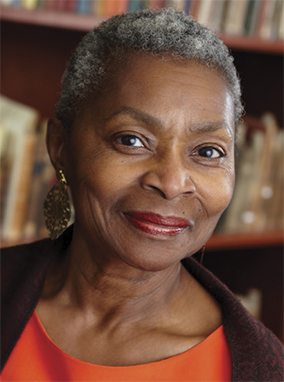HISTORIC BLACK VEGAS | Honoring a Legacy
January 22, 2022 by agutting@reviewjournal.com
Filed under Feature
Honoring a Legacy
BY CLAYTEE D. WHITE
The Historic Westside Legacy Park opened to the public on December 4. It is a glorious, sacred place: holding the history of a group of people who began to migrate here before 1870. As we walk through this space, we recognize that we are never alone. We are surrounded by events and of people whose shoulders we stand on. Thirty-six people were honored with plaques as the beginning installation of the park. But it is more than a park. This is a place of history, memories, stories, legacy, and respect. It is spiritual. It is holy ground.
The 36 people enshrined during the opening ceremony will be joined by others each year; none more deserving than any other. There is no ranking. The people being nominated presently for the Juneteenth 2022 addition, are just as powerful, as honorable, as noteworthy as the first and as those who will be added in 2030 or 2045.
In the beginning, though, was John Howell. We do not know enough about this first person who arrived before 1870, and was discovered in historical documents by Elizabeth Warren while conducting research for her PhD. As she began to learn about John Howell, she shared his story with Southern Nevada. Howell was part owner of the Spring Ranch with Jim Wilson. Today we know that ranch as the Springs Preserve and it probably was not the sole property that he owned.
John Howell journeyed to the Las Vegas Valley from Tarboro, North Carolina, married a local Southern Paiute woman, Sallie, and reared four or five children. Not merely a landowner, Howell worked as a rancher, gold prospector, and owner of a freight business.
And he accomplished all of this without being able to read or write. Imagine walking a mile in his shoes. A historian at the Spring Mountain Ranch State Park wrote, “There are no statues of John Howell in any of the communities where he lived or that he helped to establish, but the foundations of our communities and our economy were laid by his industry and grit, and by many unsung people like him. His businesses and ranches were links in the slowly-spun web of commerce that opened this once-remote corner of the Mojave Desert, and allowed the world to rush in to make the oasis we know today. These are the contributions of the first Black landowner in our [valley].”
Indeed, Legacy Park is sacred ground.






